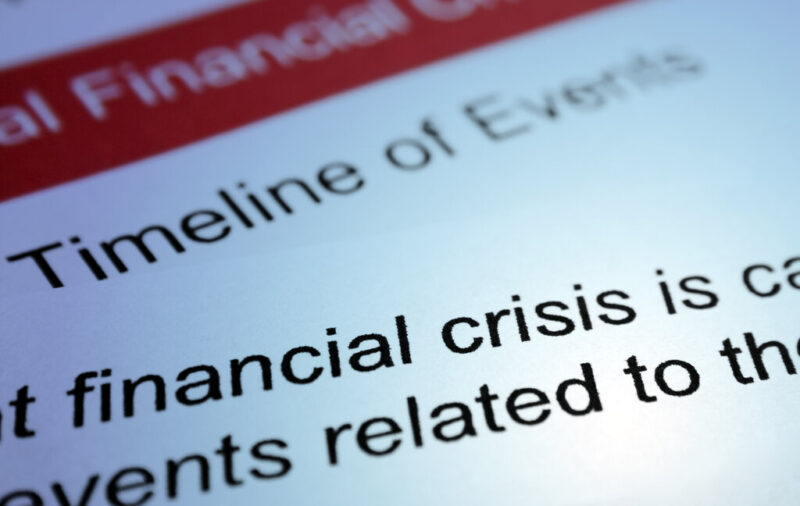What if the recession and financial crisis that central bankers are trying to cause don’t bring down inflation at all? What if they only make it even worse?
It might sound odd. Surely recessions, financial crises and tight monetary policy bring inflation down?
That’s the theory. But I’m not so sure…
Neither is the Telegraph in its article “Buy-to-let landlords face ruin as mortgage rates rocket.” Ruin sounds deflationary. But the article goes on to explain that “Landlords will be forced to sell up or inflict huge rent rises on their tenants as soaring mortgage rates risk destroying the buy-to-let model.”
Huge rent rises don’t sound so deflationary to me…
Credit ratings agency Moody’s, which covered itself in glory in the run-up to 2008, estimates that “landlords would have to raise rents by 27pc in order to be able to refinance.”
Do 27% rent increases sound deflationary to you?
It sounds like the cost of living is soaring thanks to tighter monetary policy, not slowing down.
Part of the underlying problem here is to do with the bizarre scam of inflation targeting in the first place.
You see, central banks decided to exclude mortgage costs from their definition of inflation. And so, when they fight inflation by way of raising mortgage costs, they’re not actually reducing the cost of living. They’re just shuffling it from inside the consumer price index (CPI) to outside the CPI.
They make mortgages less affordable, which reduces spending on other things, making those other things more affordable, and then they declare victory over the rising cost of living…
But this doesn’t always work so well, because mortgage costs do eventually show up in the CPI given that we all have to live somewhere… That’s the point of the Telegraph article. Rents are soaring because interest rates are soaring. The fact that renters and borrowers won’t be able to afford as much food might bring food prices down. But I’m not so sure their cost of living is any lower overall.
Not only that, but higher debt costs will constrain the construction of new properties, making the whole housing supply shemozzle even worse. Again, a higher cost of living as a consequence of tight monetary policy.
Anyway, you can see how a supposed inflation-fighting policy actually increases the cost of living. But that’s just one example.
Before we go on, I’d better explain the idea that central bankers are trying to cause a financial crisis and recession to bring down inflation in the first place. It might seem controversial to you. But it isn’t.
Gloom Boom Doom editor Marc Faber put it best in his Wealthion interview: “We are in a situation where the Federal Reserve needs to hit the financial system straight into the face with the fist.”
Within this context, Faber also referred to the recent meltdown of UK pension funds and the crash in the pound and UK governments bonds as “a little preview” of what’s to come around the world.
But why the assertion that central banks need to punch markets in the face in the first place?
Well, central banks are trying to slow the economy because they believe that it’s running too hot. And this heat is what’s making prices go up. Cool the economy down by smacking markets on the nose and prices should fall.
Right?
Central banks seem to think this is a conventional inflation. One caused by too much economic activity bidding up prices.
The problem is, the economy isn’t running hot at all. Many places are in recession already. And yet inflation remains high.
The fact that central banks didn’t see inflation coming betrays the fact that their models don’t apply to our situation very well.
If they can’t understand inflation, do you trust them to understand how to fight it?
Take a peak at history and you’ll find the connection between inflation and GDP is a little tenuous. Indeed, the Industrial Revolution, which was one of the greatest booms in economic activity ever, witnessed deflation.
This makes perfect sense, unless you have a PhD in economics.
Economic growth happens when we get better at making stuff – productivity. And productivity makes things cheaper, not more expensive.
Only modern economists would presume that an economy running “too hot” causes inflation. An economy produces more when it’s running hot, causing prices to fall, not rise.
You might think economists learned all this from the 70s. But they don’t focus on periods which disprove their theories.
Anyway, prices today are rising because of supply problems, not the “excess demand” which central bankers presume to be behind the inflation. And making debt more expensive only worsens supply problems by undermining investments to solve those supply problems.
Developers are finding it harder to build houses because of debt costs. And so property supply is struggling.
Landlords are raising rents to cover their higher debt costs.
Companies are finding it harder to finance themselves just when we need them to expand production.
Investors are taking one look at what governments have planned for fossil fuels over the next decade and deciding to stick their money in government bonds instead. At least they’re earning interest now.
So, sure, tight monetary policy is reducing demand. But it’s also making the supply side of things even worse. And that supply side is where the inflation problem came from in the first place.
This differs starkly from 2008. That crisis undermined inflation by undermining the banking system – the money multiplier in the economy. The money supply contracted, and fast. Deflation was a consequence of the chaos, not the cause of the trouble.
Today, shortages and costs are pushing up prices. Even if this were solvable by reducing demand, think about whether that’s better or worse than higher prices. Is buying less at lower prices better than more at higher prices?
If the answer were yes, then we’d already be doing it ourselves. That’s the whole point of supply and demand, after all. The equilibrium exists for a reason. It is the optimal combination of supply and demand.
Deviations from this equilibrium by way of government policy are bad news. If the government focuses on prices – too high or too low – then you create shortages or surpluses in the amounts of goods. If the government focuses on the quantity of demand or supply, you get bizarre prices.
Speaking of which, tomorrow, we look into the energy crisis and how governments are making that worse, too. But, either way, interfering with the system will only create problems elsewhere.
It’s no wonder that financial markets are having one of their worst years ever. What is remarkable is this trading strategy, which has shown encouraging results so far this year in backtesting from blue chip stocks without leverage.
How?
Find out here.

Nick Hubble
Editor, Fortune & Freedom




